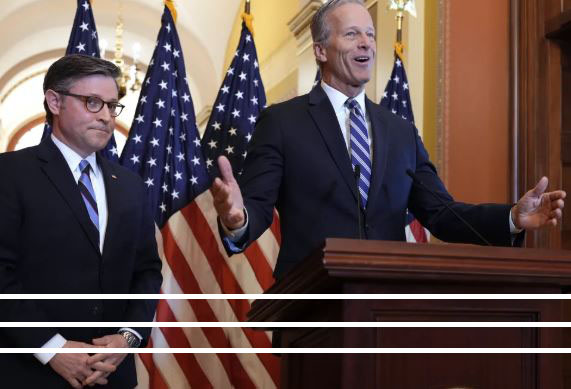
In a controversial turn of events, recent developments in the U.S. Senate have exposed a major political deception, as Republicans manipulated the filibuster—a legislative obstruction tool—in a way that sparked widespread outrage. This move was not only a breach of political tradition but also revealed a calculated strategy to block any chance of reform or legislative progress.The Big Con: Senate GOP Sabotages the Filibuster
In this article, we will examine the details of this crisis, its historical roots, and its impact on the American political landscape, along with an in-depth analysis of reactions and potential future scenarios.The Big Con: Senate GOP Sabotages the Filibuster
What Is the Filibuster, and Why Is It Controversial?
The filibuster is a parliamentary tactic that allows senators to prolong debate on a bill indefinitely, preventing a vote unless supporters can secure 60 votes to end discussion (cloture).
A Brief History of the Filibuster
- Emerged in the 19th century as a tool to protect minority rights.
- Was used to block civil rights legislation in the 1950s and 60s.
- Has become a major source of political gridlock in recent decades.
Why Is Weakening the Filibuster a Con?
Republicans, who previously opposed any attempt to limit the filibuster, have now selectively undermined it when it served their interests, exposing a glaring hypocrisy in their stance.
How Have Republicans Used the Filibuster to Block Legislation?
In recent months, Republicans have used the filibuster to obstruct:
- Voting rights reforms – to restrict ballot access.
- Minimum wage increases – to protect corporate interests.
- Climate change legislation – to favor fossil fuel companies.
The Breaking Point: Republicans Waste Their Opportunity
When Democrats proposed popular bills such as:
- Reproductive Rights Protection Act (after the overturning of Roe v. Wade).
- Gun Violence Prevention Bill.
Republicans used the filibuster to kill these measures, only to later claim “the need for reform” when pushing conservative policies.
GOP Hypocrisy: For or Against the Filibuster?
Republican leader Mitch McConnell, who once defended the filibuster as a “guardian of democracy,” has since led efforts to bypass it for Supreme Court confirmations and economic policies.
Key Contradictions:
| Previous Stance | Current Stance |
|---|---|
| “The filibuster is essential to protect the minority” (2017) | “We must weaken it to push court nominees” (2022) |
| “Changing the filibuster would destroy democracy” (2021) | “We need to reform it now” (2023) |
Reactions: From Outrage to Calls for Reform
1. Democratic Response
- Called the move a “betrayal of constitutional principles.”
- Pushed for filibuster reform or outright elimination.
2. Republican Justifications
- Defended their actions as “political necessity.”
- Accused Democrats of “overreacting.”
3. Expert Opinions
- Norman Ornstein (governance scholar): “This is political hypocrisy at its finest.”
- Sarah Binder (political analyst): “Republicians want to have their cake and eat it too.”
The Future: Will the Filibuster Be Abolished?
As polarization grows, calls for reform intensify, with possible outcomes including:
- Restoring the talking filibuster (requiring obstructionists to hold the floor).
- Lowering the cloture threshold from 60 to 55 votes.
- Eliminating it for specific issues (e.g., civil rights).
Conclusion: A Con That Exposes Double Standards
The filibuster games have revealed that some politicians care more about partisan gains than principle. If this continues, trust in democracy will erode further, leaving the public even more disillusioned with political gamesmanship.
The question now is: Will Americans wake up to this deception, or will the charade go on?

[…] of major policy changes, making it one of the most closely watched political dramas of the year.Senate GOP’s 50th Vote Struggle Senate GOP’s 50th Vote […]